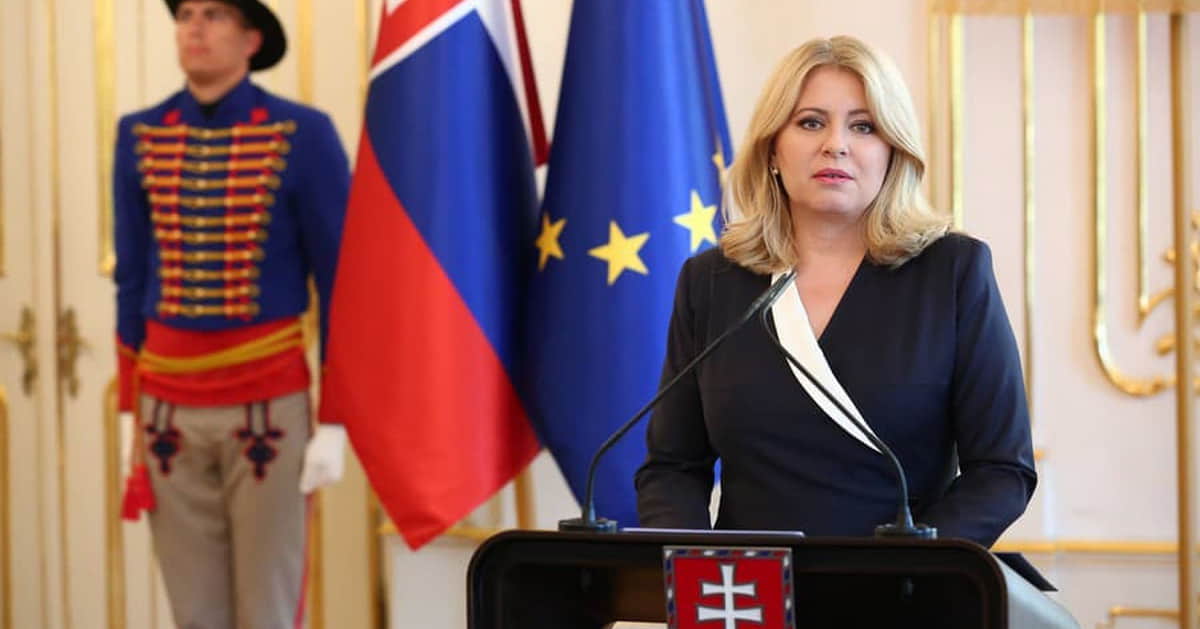Who will replace Zuzana Čaputová as the President of Slovakia, and why is it important?

Prime Minister of Slovakia, Robert Fico, stated during a meeting with the Russian ambassador that Slovakia should prepare for the post-war period in Ukraine and the "normalisation of Slovak-Russian relations." This statement caused a lot of controversy. However, Slovakia cannot adopt the same policy as Hungary, openly challenging the European Union.
Firstly, unlike the Hungarian Prime Minister Viktor Orban, Fico does not have a parliamentary majority. Secondly, the country's president, Zuzana Caputova, has certain levers critical for the new coalition. The upcoming presidential elections in Slovakia, scheduled to late April, have utmost importance.
Although the date has not been officially announced, the election campaign has de facto already kicked off, as stated in the article by Yurii Panchenko, European Pravda's editor - Elections to Cement Fico's Power: Who Will Be the Next President of Slovakia. The head of state, Zuzana Caputova, will not participate in the upcoming elections, which makes them crucial. She does not hide the fact that she will not run due to intense pressure on her and her family.
It is no secret who organised this pressure. It's the leader of the party Smer-SD and the new prime minister of Slovakia, Robert Fico. His party member, who attacked the president, Lubos Blaha, has now become the deputy speaker.
It is possible that such pressure on the head of state facilitated Fico's rise to power. Slovak political circles assume that Caputova agreed to most ministers from Fico's government, even those facing criminal investigations, due to threats from the then opposition politician. Unlike Ukraine, in Slovakia, a presidential veto can be easily overcome - it only requires another vote with a simple majority.
Nevertheless, the president of Slovakia has certain powers critical for Fico. First of all, it is the president who proposes the candidacy of the prosecutor general, making it difficult to gain full control over the country. Most likely, Fico's party will support the candidacy of the current speaker, Peter Pellegrini, for the president.
However, the Voice leader currently claims that he has not made a final decision on participating in the presidential elections. Recent sociological surveys name Pellegrini as the clear favourite in the race. A November AKO survey estimates Pellegrini's support at 34.9%, while his most likely opponent, diplomat Ivan Korcok, could count on 26.5% of voters.
A more recent survey by Focus indicates that in the event of a second-round, Pellegrini would beat Korcok, scoring 60%. At first glance, Pellegrini's victory does not seem like a bad scenario for Ukraine since he adheres to pro-Western views, significantly differing from coalition partners. However, Pellegrini's victory is advantageous for Fico primarily because it will simplify the Voice absorption.
Pellegrini will find it challenging to confront the government without his party support, opening the way for Fico to complete control, similar to Orban's. Although the victory of a candidate from the ruling coalition is far from guaranteed. The fact that the de facto presidential election campaign in Slovakia has already unofficially started (legally supposed to begin in mid-January) indicates the importance of these elections for the future of Slovakia.
And for Ukraine, for which the conclusion of the pro-Russian turn in the neighbouring country is a very serious issue.
If you notice an error, select the required text and press Ctrl + Enter to report it to the editors.